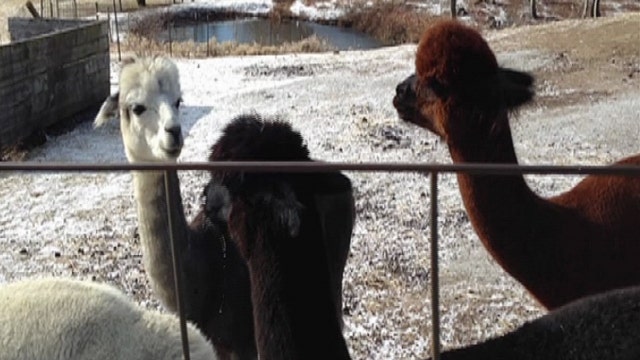Made-in-the-USA on Alpaca Farms
Alpacas are bringing business to New England in a big way.
Alpacas are smaller in size and less aggressive than their cousin the llama. Like sheep, Alpaca grow fiber that is warm and lightweight, and is often used for winter apparel.
"One of the unique things about Alpaca fiber when compared to wool or cotton is that it comes in 22 natural colors. So it doesn't have to be dyed,” says Chris Riley, president of the New England Alpaca Fiber Pool.
According to Riley, the industry is booming.
“Our business has been increasing 30% over the past ten years. So the demand for Alpaca is growing substantially.”
Farmer Barbie Tilton has been raising the breed for the past ten years and today has more than 30 Alpaca.
“I wanted a return on an investment. And they are an investment animal…there is a tax advantage to owning Alpacas unlike any other livestock,” says Tilton.
The Alpaca industry is new to the U.S., and Tilton says the growing industry is good news for people looking for American-grown and American-made products from their local farms.
“Everything used to come from South America. There was no Alpaca industry here…The idea of having enough Alpacas here to sustain a commercial industry is why we want people to raise Alpaca’s and send their fiber to these places….to build that commercial industry here and keep things in our own country,” says Tilton.
New England has historically been one of the largest textile areas in the country, making it ideal for specialty products made from locally sourced products.
“There are a lot of old mills, family-owned, multi-generational mills, that are small, that are willing to work in the specialty environment. So we see a revitalization of those old mills,” says Riley.




















